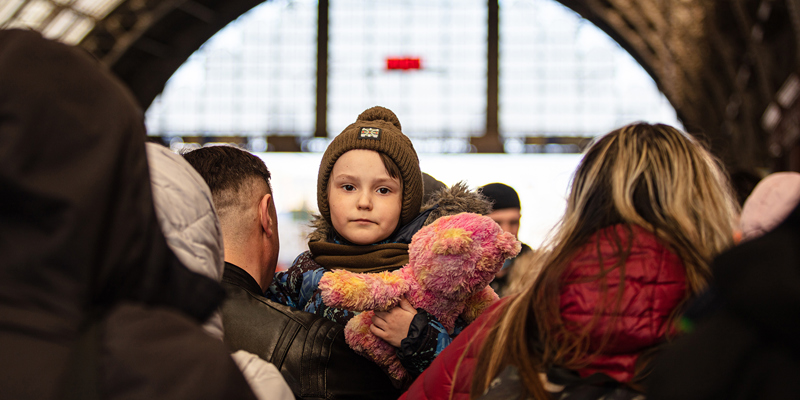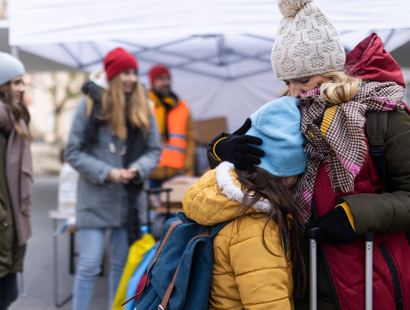
Child abduction and the war in Ukraine
What is child abduction?
Child abduction is when a child is removed or retained away from its country of habitual residence without the consent of all those with parental responsibility (or the country specific equivalent) for the child, or without the Court’s permission.
The 1980 Hague Convention requires that abducted children be returned to their country of habitual residence, in order for the Court of that country to make a decision about the child’s future. The Court must return the child if a wrongful removal is evidenced unless the abducting parent can successfully plead one of the limited defences.
The Article 13(b) defence
One defence that may be available to the abducting parent is if they are able to demonstrate that a return to the country of habitual residence would place the child at grave risk of physical or psychological harm, or that the child would otherwise be placed in an intolerable situation – the Article 13(b) defence.
It has been nearly a year and a half since the Russian invasion of Ukraine. So far there have been two reported cases of children being removed from Ukraine to England without the consent of one of their parents. How are the English Courts dealing with such cases, where the abducting parent is seeking to plead the Article 13(b) defence in relation to returning a child to a warzone?
In the case of Q v R [2022] EWHC 2961, the child’s mother made an application for the summary return of the child to Ukraine under the 1980 Hague Convention. The application was opposed by the father, who argued that
- the child had become habitually resident in England by the date of the alleged wrongful retention and therefore the 1980 Convention was not engaged, and
- in the event that the Convention was engaged, there was a grave risk that the child’s return to Ukraine would expose him to physical or psychological harm or otherwise place him in an intolerable situation.
It was established that the child was in fact habitually resident in Ukraine at the time of their unauthorised retention, so the focus moved to the Article 13(b) defence.
The father’s case focussed on there being a real risk of exposure to ‘armed conflict’, and the risk of being ‘in a legal limbo as a result of the alleged closing down of the legal system in Ukraine.’
The judge made the point that one must look at the situation on the ground, and it was noted that the town where the family would be based, which was in the far west of Ukraine, had (at that time) experienced minimal disruption as a result of the conflict.
Interestingly, the mother provided undertakings including an undertaking that if the conflict were to extend towards their town, she would remove the child from Ukraine. The judge ultimately found that an Article 13(b) defence had not been established and an order was made for the return of the child to Ukraine.
In contrast, in the matter of Z and X (Children: Article 13(b): return to Kyiv) [2023] EWHC 602, the father sought the summary return of the children to Kyiv.
The judge considered the risk levels in Kyiv and took in to account the masses of information and reporting on the heavy conflict in that part of the country.
The judge determined that there would be a grave risk of physical harm to the children if they returned to Kyiv, and that no protective measures would ameliorate or mitigate the obvious grave risk. The court granted the father’s application to withdraw his application under the Hague Convention 1980 and no return order was made.
What is clear from these two reported cases is that the court’s decisions are ‘intensely fact specific’.
In the former case, Mr Justice Williams stated that "the authorities indicate a need to focus upon the circumstances of this child returning to that country, and the risks which arise on their return and thereafter."
In the latter case, the judge added "to that specific part of that country".
The courts will therefore take a nuanced approach and will continue to consider the risk in the specific part of the country the child will return to on a case by case basis.
Get in touch
If you would like to speak with a member of the team you can contact our children law solicitors by email, by telephone on +44 (0)20 3826 7528 or complete our enquiry form.






